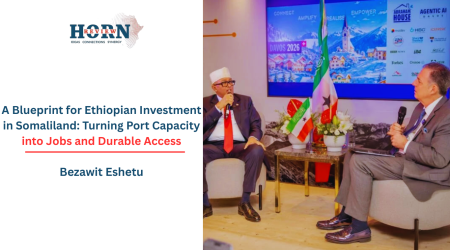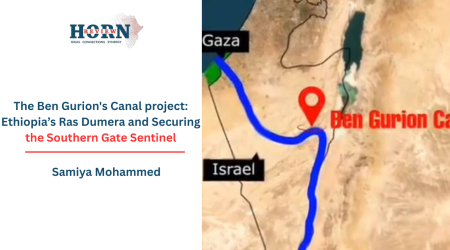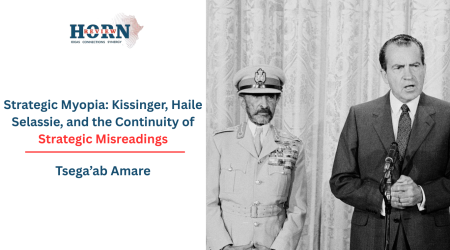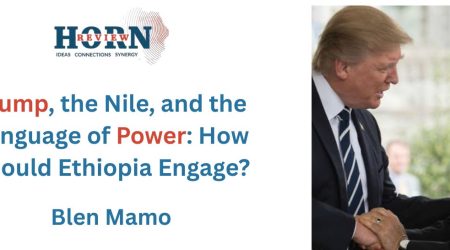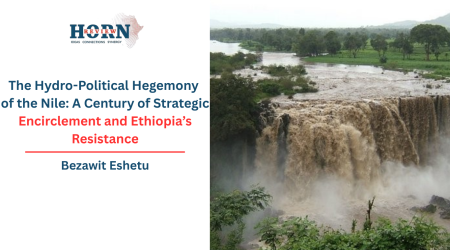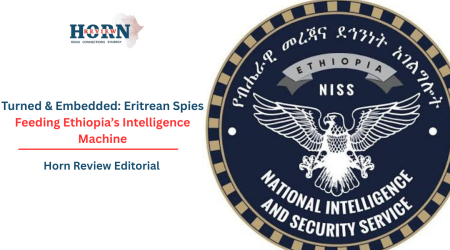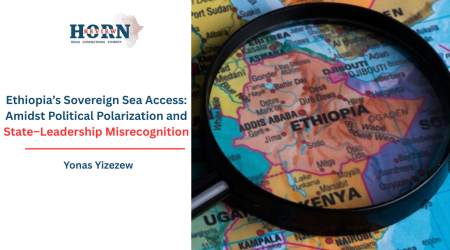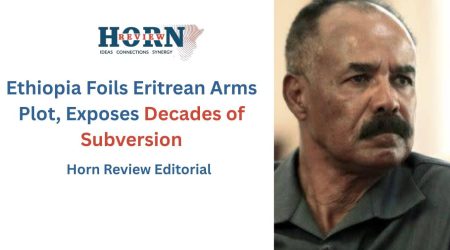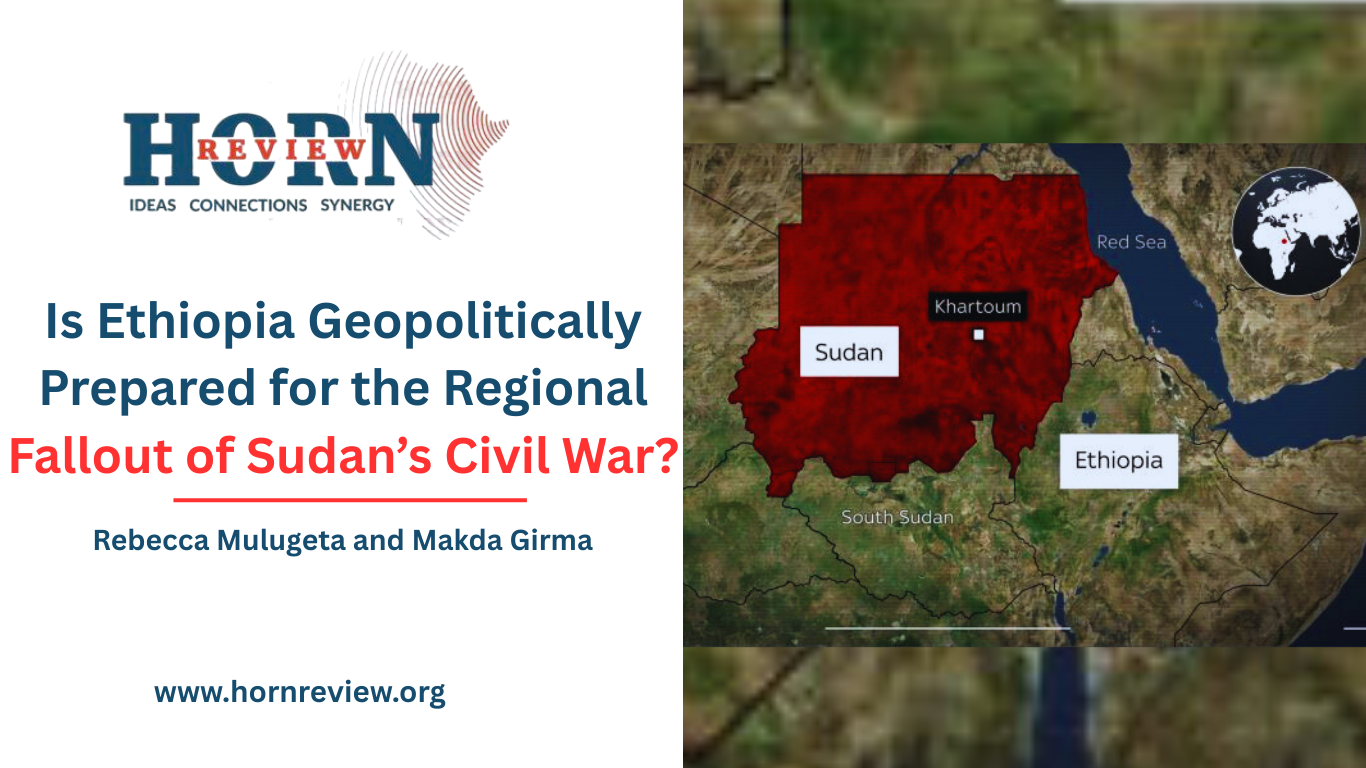
25
Nov
Is Ethiopia Geopolitically Prepared for the Regional Fallout of Sudan’s Civil War?
Sudan – prior to the secession of South Sudan in 2011 – was the largest country in Africa, covering approximately 1.886 million square kilometers and embodying vast geographic and cultural diversity. Its capital, Khartoum, lies at the strategic confluence of the White and Blue Nile, positioning Sudan as a historic gateway between Africa and the Arab Middle East. This expansive territory hosted the rise and fall of influential civilizations, including the ancient Kushite and medieval Christian Nubian states, which fused African, Arab, and Mediterranean cultures. Yet this intricate historical tapestry also produced fragmented identities and political divisions, embedding deep structural fissures that erupted violently by the late 20th century, ultimately culminating in Sudan’s fragmentation and continuing crises.
The capture of El Fasher by the RSF, a powerful paramilitary group, marks a critical turning point in this ongoing fracture. Control of El Fasher dramatically shifts the balance of power between Sudan’s warring factions, granting the RSF dominance over Darfur and expanding its reach into regions such as Kordofan. Beyond military gains, El Fasher’s fall gives the RSF a strategic position from which Sudan could be split into two – or even more – states, particularly given Darfur’s longstanding political and identity-driven grievances. A historically marginalized region, Darfur has long struggled with ethnic tensions and delayed integration, becoming a persistent theater of conflict. The RSF’s autonomous administration of Darfur signals not just internal conflict but the potential dismemberment of Sudan into at least three contested zones: territories controlled by the RSF, areas under SAF rule, and volatile borderlands. Such a scenario sets a dangerous precedent of de facto partition driven by ethnic and political fragmentation.
Following its takeover, the RSF established a parallel administration known as the “Government of Peace and Unity,” headquartered in El Fasher. This rival government claims authority over Darfur and parts of West Kordofan, directly challenging Khartoum by establishing two competing centers of power. The RSF now holds western and southern Sudan, while the Sudanese Armed Forces control the central and eastern regions. This bifurcation amounts to a de facto political, military, and administrative split, with the real potential of formally dividing the country.
The implications of Sudan’s potential fragmentation extend far beyond its borders. While Africa’s colonial-era borders were often arbitrary, they at least provided a framework for nationhood and sovereignty. When fragile states fracture violently, instability radiates outward. This is particularly concerning in the Horn of Africa, where many states already face internal fragilities or incomplete statehood.
Sudan’s abundant natural resources – including gold, oil, and Red Sea access – further heighten the stakes, inviting regional and global powers to intervene. Prolonged conflict and the rise of proxy warfare create openings for extremist groups to exploit the chaos, expanding terror networks and threatening East African security. Neighboring countries such as Ethiopia face mounting challenges from refugee influxes, border insecurity, and disrupted economic corridors.
Potential Sudanese state collapse presents Ethiopia with a serious security and geopolitical threat, especially along its western frontier. The porous border areas adjoining Ethiopia’s Benishangul-Gumuz region could become corridors for insurgent infiltrations, arms trafficking, and communal violence, worsening Ethiopia’s internal vulnerabilities. Meanwhile, the SPLM-N’s push for autonomy in the Nuba Mountains and Blue Nile could inspire parallel secessionist demands, potentially weakening the long-standing Sudan–Egypt alignment that once counterbalanced Ethiopia’s ambitions for the GERD. Sudan’s fragmentation also invites intensified intervention by external powers, transforming Sudanese territory into a proxy battleground and risking Ethiopia’s entanglement in broader contests for Red Sea access and Nile control.
Egypt’s posture toward Sudan’s crisis is both strategic and opportunistic. With GERD threatening what Cairo views as existential Nile water security, Sudan’s geopolitical position has become even more critical. Egypt supports the SAF under Al-Burhan and leverages paramilitary groups to counter Ethiopia’s growing influence. This strategy includes backing Ethiopian opposition movements and exploiting Ethiopia’s internal crises – most notably in areas near Al-Fashaga. Egyptian engagement intertwines Sudan’s conflict with regional power struggles, complicating Ethiopia’s security environment.
Ethiopia has pursued a blended diplomatic approach toward Sudan’s conflict from the beginning. Addis Ababa engaged widely in mediation efforts through the African Union and IGAD, promoting peace talks and regional cooperation. High-level delegations, including Prime Minister Abiy Ahmed, have engaged both sides – such as during the PM’s visit to Port Sudan to meet Al-Burhan – to encourage peace and stabilize border regions.
Yet Ethiopia must remain realistic. Diplomacy may falter amid Sudan’s accelerating fragmentation and growing external interference. Historical precedent shows that diplomacy alone rarely resolves geopolitical crises in today’s multipolar world. As a neighbor deeply affected by Sudan’s recurring civil wars, Ethiopia must prepare for alternative scenarios. This includes measured and discreet support for actors aligned with Ethiopia’s security interests – not as a political endorsement but as a strategic safeguard against hostile factions backed by Egypt or Eritrea.
Ethiopia must advance a strategy combining diplomatic engagement, intelligence-sharing, and logistical preparedness – functioning as a “silent wind steering a ship.” With El Fasher now under RSF control, unless the SAF regains ground, Sudan is increasingly likely to fragment further, intensifying pressure on Ethiopia. Egypt’s containment strategy – now more focused than ever on sub-Saharan Africa – aims to encircle Ethiopia and constrain its Nile and Red Sea ambitions. Ethiopia must adopt a strategy based on the maxim, “A forewarned farmer cuts his losses early,” emphasizing anticipatory diplomacy and defensive readiness to prevent Sudan’s violence from spilling into fragile Ethiopian borderlands.
This dual-track approach – robust diplomatic engagement paired with realpolitik preparedness- must define Ethiopia’s posture. It allows Ethiopia to maintain its reputation as a peace mediator while defending essential national interests: territorial integrity, border security, and equitable Nile utilization. As Sudan’s fragmentation deepens, Ethiopia must adapt its security architecture by strengthening border controls, enhancing intelligence capacity, and countering support for anti-government groups backed by Egypt and Sudanese factions.
The spillover from Sudan is already tangible. Increased arms trafficking, refugee inflows, and cross-border hostilities have strained security in western Ethiopia. Clashes between Ethiopian forces and South Sudanese militias have intensified, while internal insurgencies persist. Sudan’s war spreads like wildfire across porous borders, threatening to inflame Ethiopia’s internal conflicts and undermine state control.
Ethiopia’s calibrated engagement demonstrates a sophisticated balance of principle and pragmatism. Addis Ababa remains committed to diplomacy and regional peace, consistently supporting Sudan’s territorial integrity. However, Ethiopia must be ready to exert political influence if its sovereignty or security is endangered. This approach aims to prevent hostile factions from gaining footholds that could jeopardize Ethiopia’s regional leadership or Nile interests amid intensifying geopolitical competition with Egypt and Eritrea.
The Ethiopian proverb captures the moment: “A smooth sea never makes a skilled sailor.” Diplomacy is Ethiopia’s preferred tool – guided by patience and principle – but hard realism shapes its preparedness in a volatile Horn of Africa, where Egyptian maneuvers often outpace expectations, delaying Ethiopia’s national objectives regarding the Nile and the Red Sea. Ethiopia’s national interests are non-negotiable, and its response will escalate accordingly if threatened. This hybrid diplomatic–defense posture maximizes Ethiopia’s influence while minimizing risks in an increasingly unstable region.
Sudan’s potential collapse is not only a national tragedy; it is a defining regional crisis with multifaceted implications for security, governance, and power dynamics in the Horn of Africa. Ethiopia’s role is pivotal, requiring a careful blend of diplomacy, restraint, and strategic foresight. Drawing on its legacy as a mediator while employing its diverse security tools, Ethiopia seeks to navigate Sudan’s turbulent transformation – promoting peace where possible and defending sovereignty where necessary. The future of Sudan and Ethiopia’s place in the Horn are deeply interlinked, demanding vigilance, wisdom, and resilience for a stable and prosperous region ahead.
By Rebecca Mulugeta and Makda Girma, Researchers, Horn Review
By Rebecca Mulugeta and Makda Girma, Researchers, Horn Review



